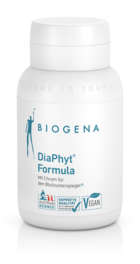Ginseng is one of the oldest and most popular medicinal plants in the world. Its adaptogenic properties, which help the body to cope with stress, and its varied health benefits make it an indispensable part of traditional medicine. In this blog post, we go into detail about the benefits, effects, possible uses and potential side effects.
Definition: What is ginseng?
Ginseng is a plant belonging to the Panax genus, found mainly in the forests of Asia and North America. The best known species are Asian ginseng (Panax ginseng) and American ginseng (Panax quinquefolius), which is milder.
The root of the plant, used for centuries in traditional Chinese medicine, is known for its energising and health effects. The term ‘Panax’ is derived from the Greek word ‘panacea’, meaning ‘cure-all’, and reflects the broad range of applications of ginseng.
NOTE: Sometimes Siberian ginseng is also mentioned. This is another name for eleutherococcus (taiga root) and should not be confused with Panax ginseng.
Benefits and effect of ginseng
The effects of ginseng are varied and are mainly attributed to its active ingredients, ginsenosides. These compounds are intended to show modelling effects on the immune system and the central nervous system. Ginseng is thought to increase physical and mental performance, reduce fatigue, reduce stress, promote sexual health, lower blood sugar levels and improve the immune function. However, not all of these effects have been sufficiently scientifically investigated and proven.
The proven effects of ginseng include:
Stress reduction
The adaptogenic properties of ginsenosides help the body to better manage psychological and physical stress. They support the stability of the metabolism, regulate important hormones such as cortisol and testosterone, and protect cells from oxidative stress damage. This increases resilience, improves performance under stress and reduces the risk of stress-related illnesses.
Reduction in blood sugar levels
Ginseng has been shown to help lower and regulate elevated blood sugar levels. Thanks to the numerous antidiabetic effects, the medicinal plant is also used as an accompanying therapeutic agent for type 1 diabetes mellitus.
Improving sexual health
Ginseng is often used as a drug to increase the libido and to treat erectile dysfunction. This is because the ginseng root can directly improve sperm quality and, due to its stress-reducing properties, can indirectly contribute to reducing the negative effects of stress on sperm quality. This makes ginseng a supportive agent for the treatment of fertility disorders in men.
Effect on the brain
Studies have shown similar psychoactive effects in humans for ginseng as for guarana. It improves the mood parameters and thus provides more drive.
Immune system strengthening
Ginseng can support the immune system by promoting the production of immune cells.
Use of ginseng: Tea, capsules, etc.
Ginseng is available in many forms: As a dried root, extract, capsule, in cosmetics, lemonade or tea. A different pharmaceutical form can be selected depending on personal preference and the desired effect.
For those who prefer the exact dosage, capsules are a practical option. They contain high-dose extracts and are easy to integrate into everyday life. Ginseng is usually used in combination with other active ingredients to achieve the desired effect.
Ginseng side effects & interactions
Ginseng is considered very safe when the dosage recommendations are taken into account. When used correctly, it is a valuable health supplement. This allows you to make the most of the benefits of ginseng and to minimise the potential risks.
However, due to insufficient studies, pregnant women, breastfeeding women and children should avoid taking ginseng.
Frequently asked questions about ginseng:
Ginseng is good for reducing stress, strengthening the immune system, supporting sexual health, lowering blood sugar levels and it has a positive effect on the mind.
Ginseng has an antioxidant effect and helps to relieve stress, which can support overall mental performance.
You should not take ginseng if you have a known allergy to ginseng. Pregnant and breastfeeding women should refrain from taking it or consult a medical professional before taking it.
Further reading:
Gaffney, B. T. et al. 2001. The effects of Eleutherococcus senticosus and Panax ginseng on steroidal hormone indices of stress and lymphocyte subset numbers in endurance athletes. Life Sci. 70(4):431-42.
Gröber, U. Arzneimittel und Mikronährstoffe: Medikationsorientierte Supplementierung, 3. aktualisierte und erweiterte Auflage. Stuttgart: WVG Wissenschaftliche Verlagsgesellschaft Stuttgart, 2014.
Hong, B. et al. 2002. A double-blind crossover study evaluating the efficacy of Korean red ginseng in patients with erectile dysfunction. A preliminary report. J Urol. 168(5):2070-3.
Hwang, H. J. et al. 2007. Combined effects of swim training and ginseng supplementation on exercise performance time, ROS, lymphocyte proliferation, and DNA damage following exhaustive exercise stress. Int J Vitam Nutr Res. 77(4):289-96.
Kennedy, D. O. et al. 2004. Improved cognitive performance in human volunteers following administration of guarana (Paullinia cupana) extract: comparison and interaction with Panax ginseng. Pharmacol Biochem Behav. 79(3):401-11.
Mkrtchychan, A. et al. 2005. A phase I clinical study of Andrographis paniculata fixed combination versus ginseng and valerian on the semen quality of healthy male subjects. Phytomedicine. 12(6-7):403-9.
Nocerino, E., Amato, M., Izzo, A. A. 2000. The aphrodisiac and adaptogenic properties of ginseng. Fitoterapia. 71(Suppl 1):S1-5.
Vuksan, V. et al. 2008. Korean red ginseng (Panax ginseng) improves glucose and insulin regulation in well-controlled, type 2 diabetes: results of a randomized, double-blind, placebo-controlled study of efficacy and safety. Nutr Metab Cardiovasc Dis. 18(1):46-56.













